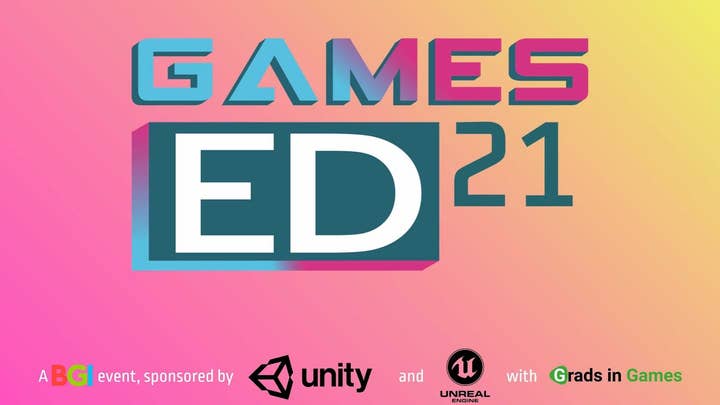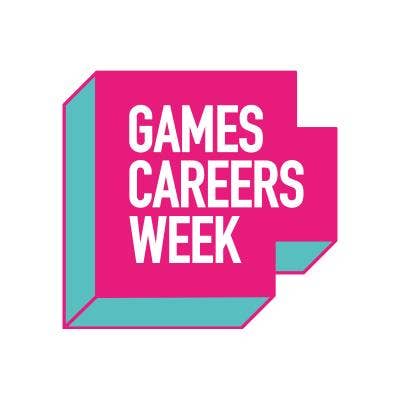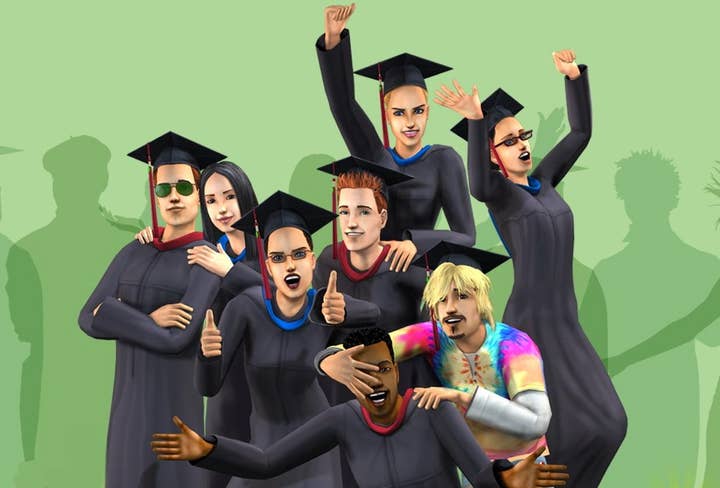What next for games education and early careers post-COVID?
Speakers from the upcoming Games Education Summit 2021 discuss the key challenges that lie ahead for aspiring games professionals in the post-pandemic era
With Games Education Summit 2021 kicking off later this month, as part of the first ever Game Careers Week, a number of the conference's key speakers highlight the challenges and opportunities facing both educators and studios in 2021 and beyond.
If you want to learn more about the issues highlighted here, these and much more will be examined by 75 participating organisations at Game Careers Week, which is held online between March 26 and April 2. The Games Education Summit 2021 takes place between March 31 and April 1.
Sharon Tolaini-Sage, associate professor, Norwich University of the Arts
It is by now a cliché that the pandemic has 'revealed inequality' in our own and in global society. But this ability to 'make strange' what is usually very familiar, does not present surprises. The fact that women are underrepresented in the games sector is well known, and that diversity of all kinds is a sector wide problem is also very familiar.
The virus has changed the way everyone works, but in many ways has enabled the games industry to sail forward almost seamlessly, productively, even as other industries languish. Is it possible to embrace the opportunity for change that this period offers, through a moment of pause, and reflection?
"Is it possible to embrace the opportunity for change that this period offers, through a moment of pause, and reflection?"
Sharon Tolaini-Sage
There is definitely an appetite for education and industry to collaborate more, and more freely, in order to actively support those with the ability and potential to succeed. Recent online collaborative projects between Norwich University of the Arts and companies as diverse as Ubisoft, Creative Assembly, Dovetail, Sprung Studios and Chucklefish have shown that the benefits can be huge. Individual mentorship, even for short periods, can make a huge difference to the confidence of young people at a formative time of their lives.
Perhaps the greatest challenge to face all stakeholders in the games sector is now how to enact change, and perhaps the disaster that is COVID-19 is simultaneously the greatest opportunity to do so.
Emma Smith, head of talent, Creative Assembly
The UK games industry suffers from both a skills shortage and a lack of diversity. The reasons for this are complex, but include misconceptions about available careers and skill requirements, limited access to technology for those in disadvantaged areas, and a lack of diverse role models. This has been further compounded by the disruption of COVID-19 and remote learning.
The industry can play a part in addressing these issues through mentorship and guidance on curriculums -- even on a small scale, this can lead to positive change. These smaller initiatives can build over time into fully fledged industry education programmes, such as Creative Assembly's Legacy Project. We started small and built close partnerships with local education, and we now work with establishments across the UK to bridge the existing skills gap, having recently announced a new scholarship programme for game design students at Teesside University.

Jake Habgood, director of education partnerships, Sumo Digital
UK universities are facing unprecedented challenges right now. Yes, there's COVID and everything that goes with it, but there are longer-term challenges at work in higher education too.
Many students now need to work to pay their way through education. That inevitably means they have less time to study than they used to, and universities are under pressure to reduce student workloads in order to maintain good NSS results. At the same time, universities need to achieve more with less as a result of significant increases in the costs of pension schemes. Put these two factors together and you can understand why lecturers are facing increasingly difficult choices about where to focus their time and energy.
"COVID-19 has amplified digital inequality and access to opportunity for children from lower income families"
Marcia Deakin
It's easy for our industry to call for higher standards in higher education, but we have to accept that's not going to happen in the current climate without investing our time and energy supporting universities. For me, that's what TIGA accreditation allows me to do: be an industry voice on the inside, praising and supporting good practice where we see it so that universities continue to prioritise and value relevant industry skills.
I think there are also opportunities for the industry to play a more direct role in shaping educational pathways into our industry: here at Sumo, The Academy has been collaborating with industry partners to create a new Level 7 Game Programming apprenticeship specification, and we've just created some C++ game programming resources for A-Level students as a part of Games Careers Week.
I hope GCW will become a real focus and driver for this kind of activity and it will be exciting to see what can come out of such a great event in the long term.
Kish Hirani, chair, BAME in Games
Attracting new, qualified talent and then retaining it remains a challenge to the industry as a whole. Retaining is a whole different subject, so I will focus on getting the right talent into the industry.
I joined the video games industry 25 years ago, purely because one of my professors, teaching visualisation for my MSc in computer science at Edinburgh University, had a connection with the industry and he put me forward for an interview. I started the day after I graduated, and to a great extent not a lot has changed -- except we now have a much stronger connectiosn between studios and educators, as well as recruitment agencies, and, of course, we have specific university games degrees courses. That connection is vital.

The biggest challenge remains that the industry is still not perceived as a serious career, and that continues to stifle a diverse pool of talent studying, as well as eventually joining the industry. Hesitation continues at the government level, with local and arts councils still finding it difficult to give recognition and funding to the industry in the same way as other industries -- especially when it comes to formal apprenticeship programs. That stops a major talent pool who do not pursue further education from joining the industry.
Marcia Deakin, games partnerships director, Next Gen Skills Academy
COVID-19 has amplified digital inequality and subsequent access to opportunity for children from lower income families -- 25% of the NextGen Skills Academy don't have access to appropriate hardware, and this will have a knock on effect for many, many years to come.
The industry itself has already helped, with Creative Assembly stepping in to provide laptops for students to complete the second year of their qualification. We can make a huge difference to young peoples lives by supporting young people who need it the most.
Matthew Wilson, tutor, Priestley College
From an educational point of view, one of the issues I consistently face is the cost of running a course that uses such expensive equipment and software. The generosity of large studios in supplying tech to students has been well documented during lockdown -- this has been amazing to see, and opened up many more possibilities for those students.
However, there is an ongoing battle for colleges to raise money to ensure they have the hardware and software -- not to mention the experienced staff to teach their courses. There are some great alternatives out there, for sure, and I have most certainly put those to the test over this last 12 months, but kitting out a games studio/classroom is not cheap.
We have seen so many opportunities rise out of this lockdown period, and the work that initiatives such as Into Games have done has been amazing. Declan Cassidy and his team have put together some worthwhile links to the industry for so many schools and colleges that struggled to make connections. The Virtual Work Experience currently being rolled out has been a great opportunity for students to meet with studios and learn from professionals.
More importantly, it has helped to build awareness of the skills and ability of Level 3 students to the industry. We have already seen the success of Level 3 internships in AAA studios, and this needs to built upon to encourage more to take the chance as we drive to offer alternative options to the single university pathway into video games.
GamesIndustry.biz is a media partner of the Games Education Summit 2021.

